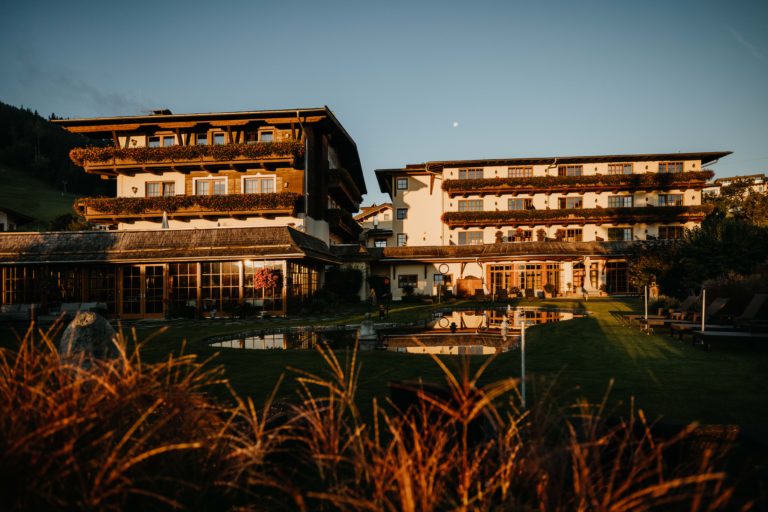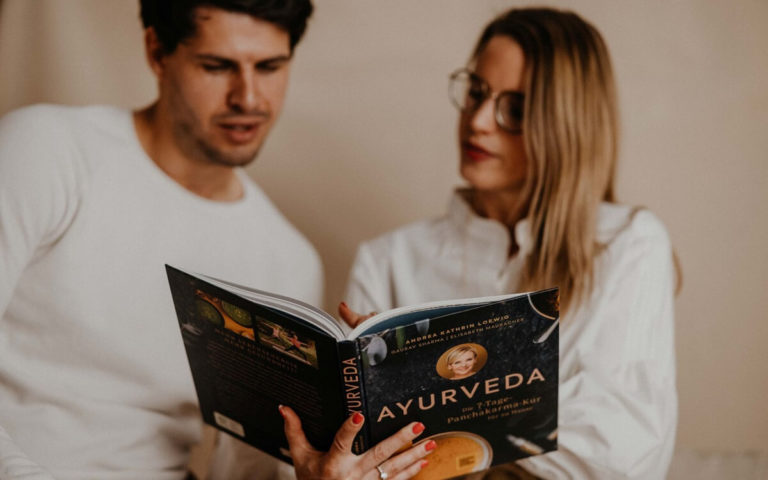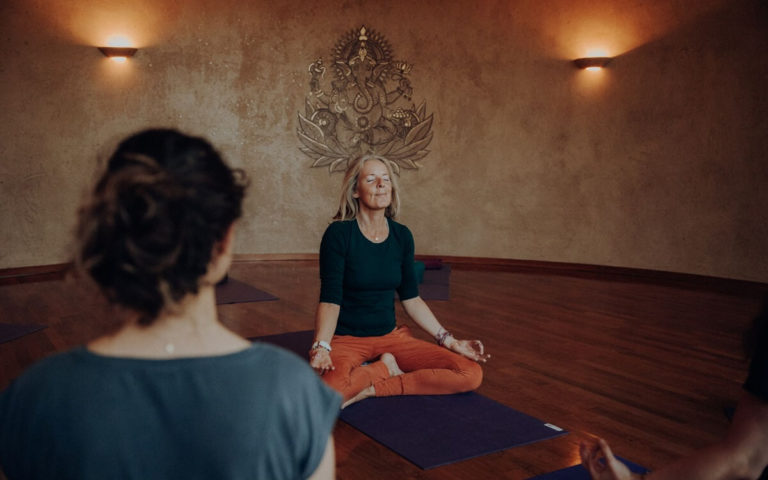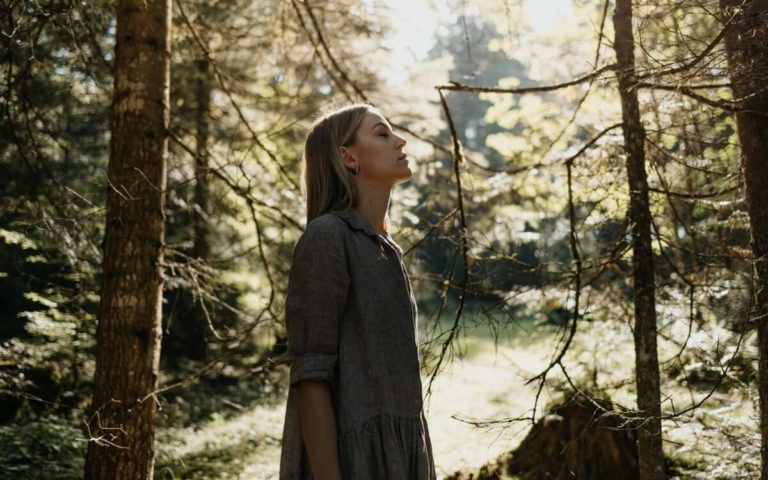Ayurvedic health teachings include massages as well as nutrition and yoga. The Ayurveda Abhyanga massage is one of the most beneficial and effective forms of treatment. Abhyanga can be translated from ancient Indian as "great oiling with loving hands".
The most important facts about the Abhyanga massage
Abhyanga is an Ayurvedic full body massage with different, individually tailored oils. Warming oils are used for the body and cooling oils for the head.
The main purpose of the massage is to completely purify your body. Its effect can be calming and balancing as well as stimulating and invigorating.
The Abhyanga massage works in three areas:
- Physical relaxation and loosening of your body
- Mental well-being by loosening and releasing inner barriers
- Medicinal effect through the penetration of the herbal extracts of the massage oil into your body
An Abhyanga massage generally contributes to your well-being. According to Ayurvedic teachings, it is particularly suitable for balancing out a lot of physical or mental work, stress or for regenerating the body.
The tradition and history of the Abhyanga massage
The Abhyanga massage combines several massage techniques to deeply relax and revitalize your body.
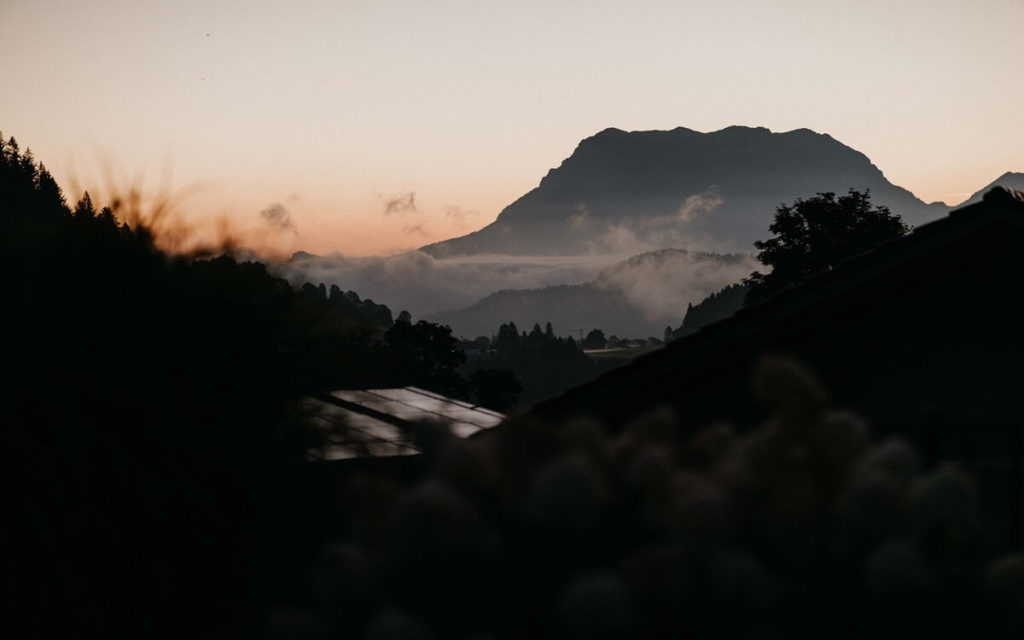

We also use high-quality, plant-based oils that penetrate deep into your skin. In this way, they support a healthy complexion.
In the Rigveda, one of the most important Hindu scriptures, the following words refer to the positive effect of the Abhyanga massage:
"My hand is God. Boundlessly blissful is my hand. This hand keeps all the secrets that make whole with its gentle touch."
A distinction is made between the inner oiling (Abhyantara) and the outer oiling (Bhahya Snehana). In addition, Abhyanga is divided into a pressure massage (Mardana) and a lighter, gentler massage (Smvahana). The focus can also be placed on acupressure and the energy channels, which is then referred to as Marma massage.
Ayurvedic massages help you to clear your head and are a holistically enriching experience.
Abhyanga as an Ayurvedic morning ritual
The aim of European Ayurveda® is to harmonize body, mind and soul. The classic morning routine consists of various rituals. They promote your health and mental and spiritual development.
This includes the following rituals:
- Get up before the sun rises
- An Abhyanga massage, 2-3 times a week
- Drink a glass of water on an empty stomach
- Oil the body and gargle with oil
Ayurveda massage: procedure and effect
The Abhyanga full body massage has a relaxing, rejuvenating effect and strengthens your immune system.
There are two stroking directions for the massage - against and with the direction of the hair. Your therapist will discuss with you which type is right for you.
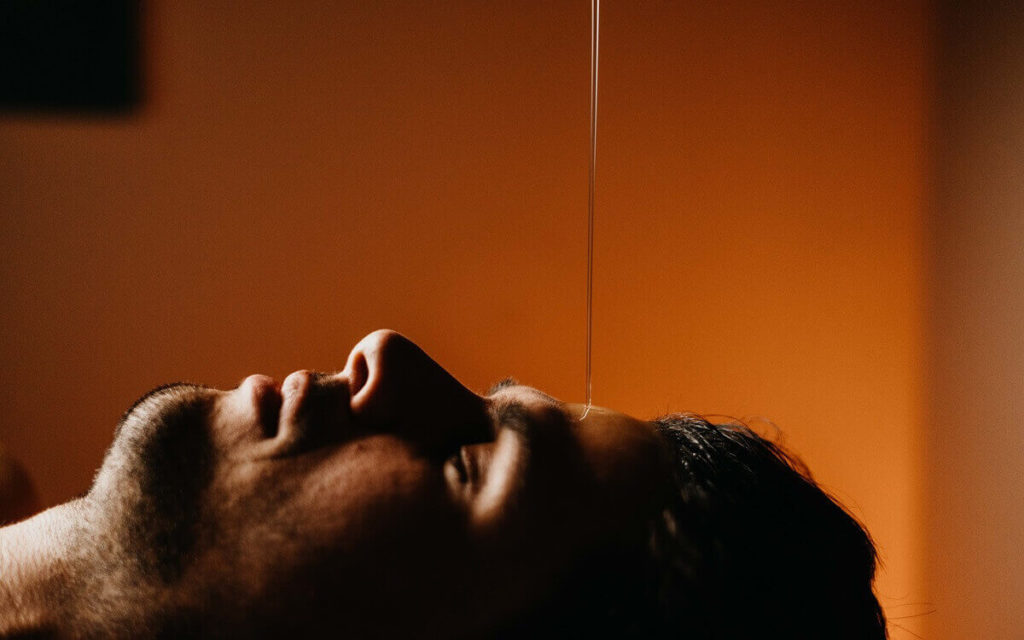

The massage with the hair direction "Anuloma" has a calming and balancing effect on you. The second variant is performed against the direction of the hair and is called " Pratiloma". Its effect is stimulating and invigorating. It offers the perfect opportunity to awaken your spirits.
The term Abhyanga stands for the oiling of the entire body. However, there are also subtypes and partial massages that serve different purposes.
Ayurvedic partial massages are for example:
- Mukabhyanga (facial massage)
- Prishtabhyanga (back massage)
- Udarabhyanga (abdominal massage)
- Padabhyanga (foot massage)
The Abhyanga massage mainly uses heating oils for the body. Cooling oils, on the other hand, are used for your face. Ayurveda generally only uses cooling oils for the face and head to prevent heat from building up in the head.
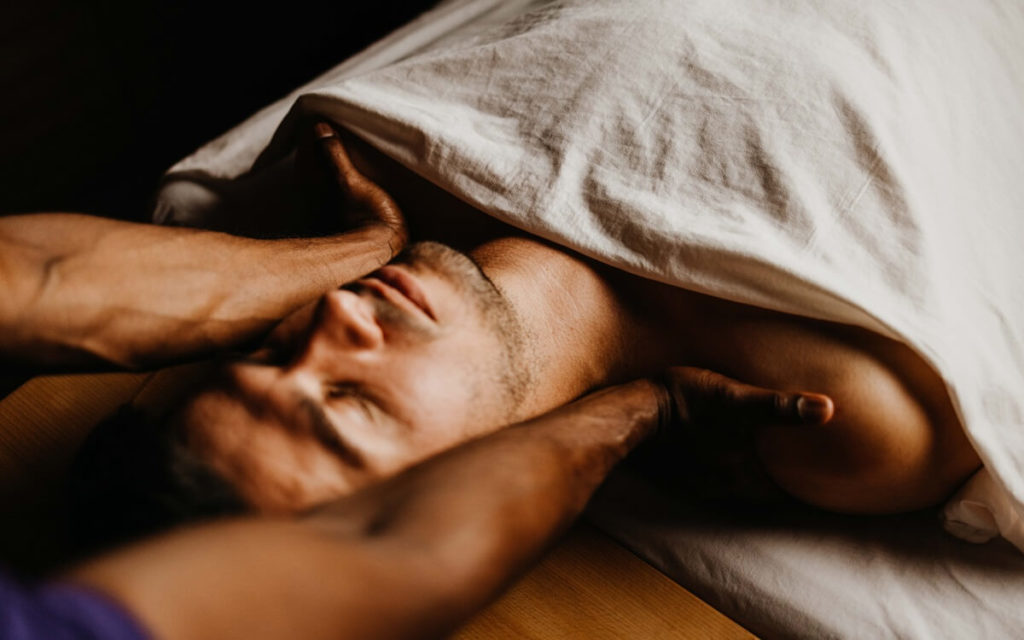

According to Ayurvedic teachings, the Abhyanga massage effect can be divided into three areas.
- On the one hand, like a classic massage, it serves to physically relax and loosen your body.
- The treatment also has a positive effect on your mental well-being. Inner barriers are loosened and released.
- A third area is the "medical" application. This involves introducing the healing herbal extracts of the massage oil into your body.
Overall, the Abhyanga treatment has various positive effects on your body. The aim is to open your detoxification channels to promote the removal of toxins.
An Ayurvedic Abhyanga massage can also have other positive effects:
- Strengthening the ability to see
- Promoting a good night's sleep
- Stimulation of organ function
- Slowing down the ageing process
- Promotion of beautiful skin
- Improving general health
The pros and cons of an Abhyanga massage
There are some classic indications that speak in favor of an Ayurvedic massage. However, such a massage is not recommended for certain conditions of the body.
Classic indicators for Abhyanga:
- In case of an imbalance of the doshas, especially Vata (the principle of movement)
- Daily performance of intensive physical exercises (e.g. for athletes)
- As a balance for a lot of mental work
- In geriatrics, as a rasayana (rejuvenating agent)
- To promote the regeneration of tissue and organs
- For stress reduction
These conditions speak against Abhyanga:
- A cold with heavy mucus production
- Directly after a detoxifying treatment, such as the Panchakarma cure (Ayurvedic cleansing cure)
- Acute fever
- Food not yet fully digested
- Clients with severe fatigue
- Severely blocked shrotas (body channels) caused by ama (undigested food)
The different oils and their modes of action
The production of the special types of oil for the Abhyanga massage is very time-consuming and material-intensive. It sometimes takes several days. However, the high quality of the oils is crucial for the therapeutic benefits.
The oils account for up to 70 percent of the treatment. Various oils are used for an Abhyanga massage and selected individually depending on the constitution.
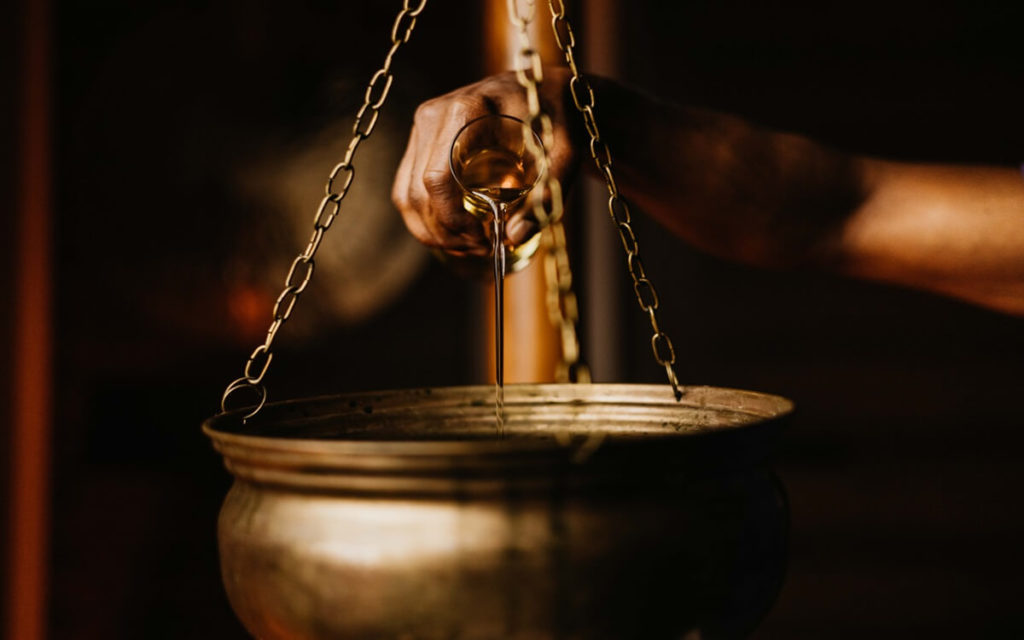

The oil nourishes your cells and organs. It removes waste products from the tissue and supports the body's positive perception. For example, sesame oil (heating), olive oil and coconut oil (cooling) can be used as body oils.
Sesame oil plays an important role. It can penetrate very deeply through the tissue and thus supply it adequately with nutrients. It is not for nothing that the saying goes: Open sesame seeds!
The cooling and fragrant properties of rose oil or almond oil will enchant you during the Abhyanga facial massage. In Ayurveda, the face and head are always treated in a "cooling" way so that no heat is generated in the head.
Three typical medicated oils in Ayurveda
The oils Mahanarayan Thailam, Pinda Thailam and Shulahara Thailam are particularly popular for Ayurvedic massage. They have a healing effect.
- Mahanarayan Thailam: An oil that has an anti-inflammatory, pain-relieving and nourishing effect on the various dhatus (tissues). It is used for stiff joints, inflammation of the tendons and rheumatic diseases. It is also excellent as a whole body oil for abhyanga for Vata or Vata imbalance.
- Pinda Thailam: An oil that has a cooling and blood-purifying effect. It is used to treat excessive heat in the body and skin metabolism disorders. Pinda Thailam is also used for Pitta types or Pitta imbalance.
- Shulahara Thailam: An oil that contains camphor and mustard oil, among other things, has a cleansing and heating effect. It stimulates the metabolism. This oil is good for slagging, cellulite, sluggishness or muscle tension. It is used for Kapha constitution or Kapha disorders.


Discover high-quality massage oils now
In our European Ayurveda® Shop you will find numerous Ayurvedic body care products in exclusive quality. Discover our massage oils now!
Characteristics of an authentic Ayurveda Abhyanga massage
The following points are important for you before the actual massage:
- Do you have an allergy?
- Have you had an operation in the last six months?
- Is there a pregnancy?
- Are you currently menstruating?
Your therapist can use these questions to tailor the massage, the oil, the pressure and rhythm, as well as the duration and follow-up treatment to you. Your therapist will also be able to better inform you about possible reactions.
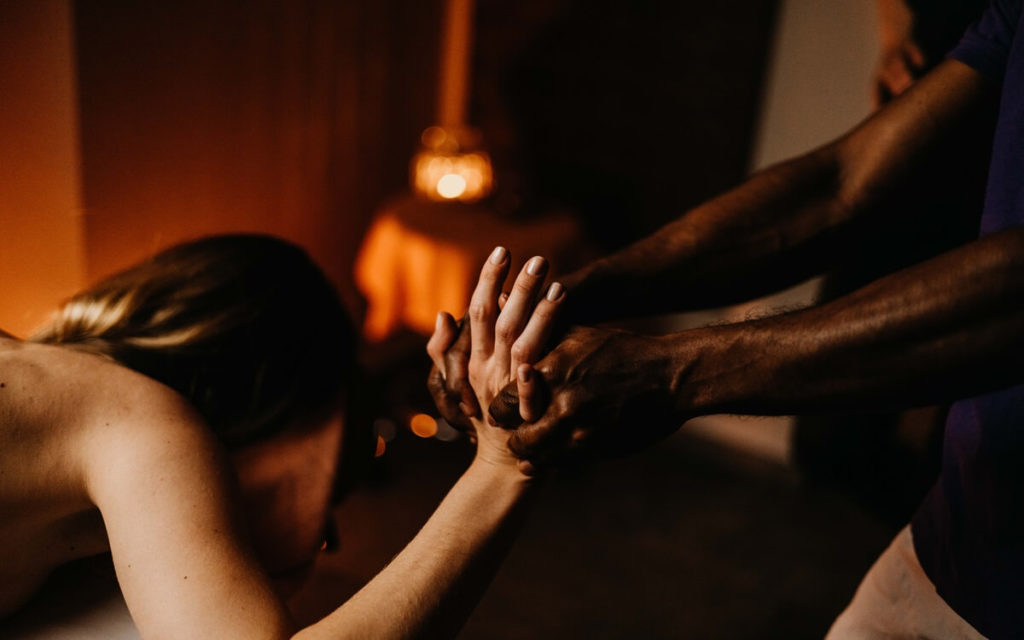

To maintain the balance gained through the massage, you should pay attention to the following points after the Abhyanga massage:
- Do not walk barefoot
- Protect yourself from draughts and wind
- Cover your head
- Do not eat a sumptuous meal
- Do not perform any extreme activities after the massage
- Drink hot ginger water
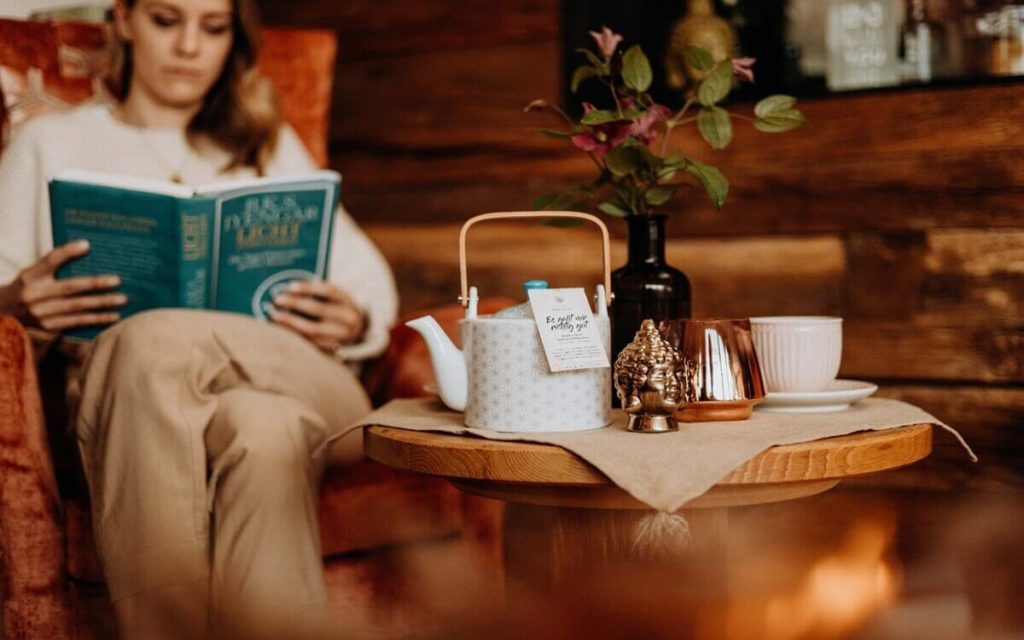

Ayurvedic detox: procedure and effectiveness of Ayurvedic detoxification
With an Ayurveda detox cure, your body is detoxified, your soul can breathe a sigh of relief and your mind can concentrate on the essentials again.

